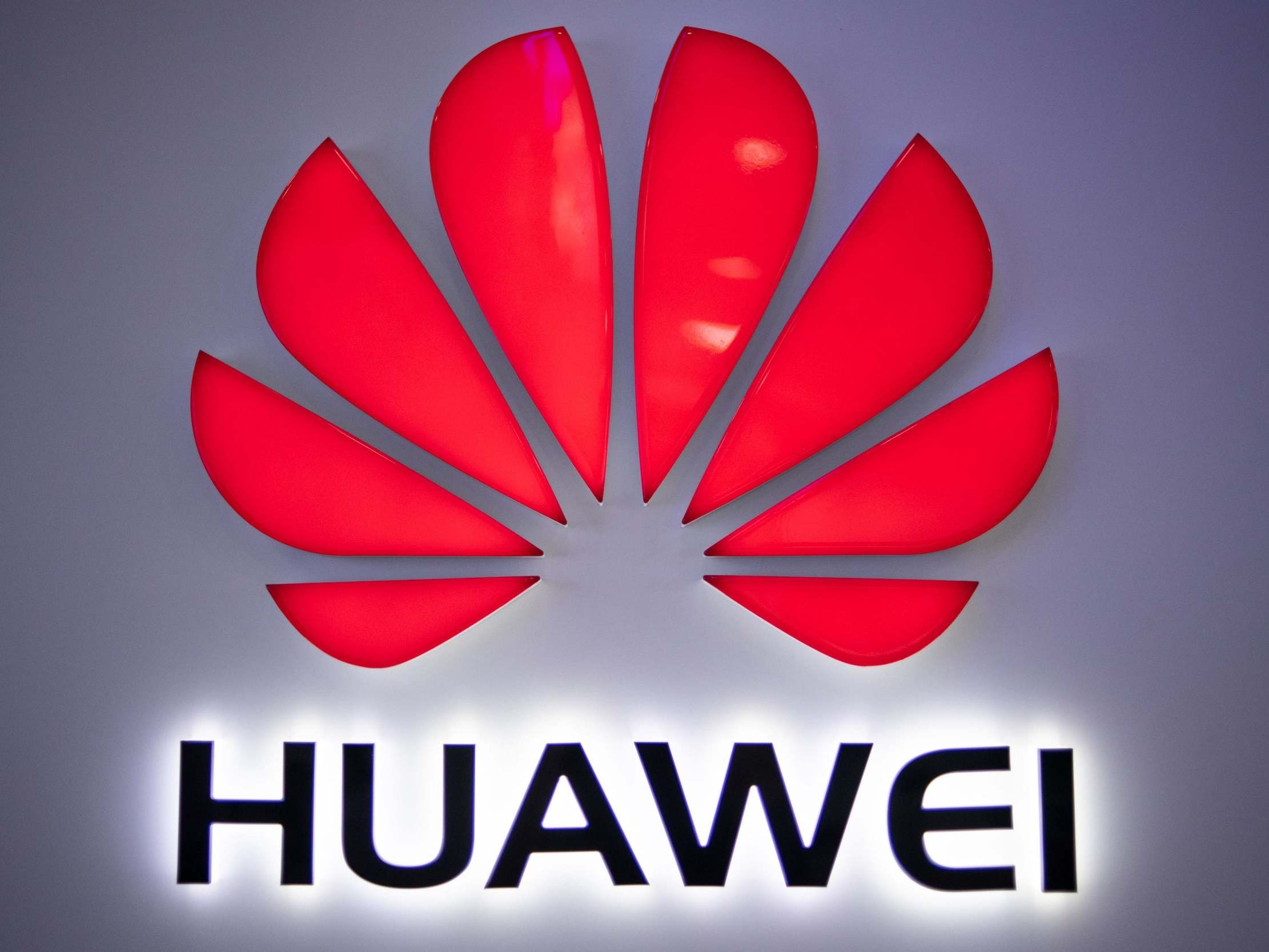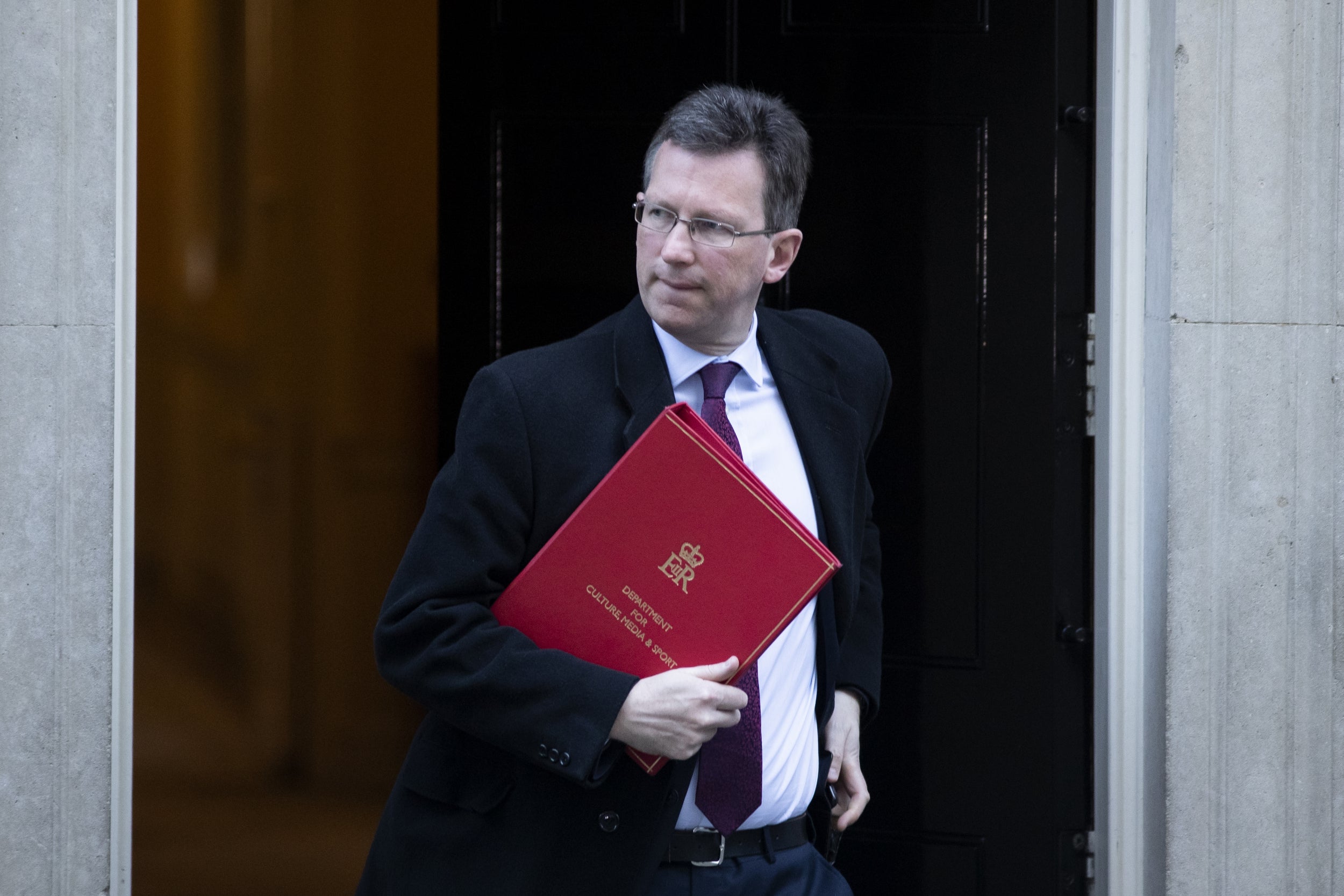Theresa May will leave decision on whether Huawei should be involved 5G development to next PM
Culture secretary warns the House of Commons that delay to the introduction of the UK's hi-tech telecoms system 'may be appropriate'

Theresa May will leave the decision on whether Chinese telecoms giant Huawei should be involved in the development of the UK’s 5G network to her successor.
Culture secretary Jeremy Wright announced that the Government was “not yet in a position” to decide whether to accept bids for work on the hi-tech project from the company, which is subject to US sanctions because of Washington’s fear it may pass on secret data to the authorities in Beijing.
Mr Wright said that a delay to the rollout of the 5G network may be “the most appropriate course” in response to uncertainty over Huawei’s involvement.
Labour’s shadow culture secretary Tom Watson said the Government’s handling of the issue had been characterised by “confusion” and said ministers had failed to produce a “plan B” for hitting the 2027 target date for nationwide 5G rollout if they are unable to use Huawei technology.
Meanwhile, the company welcomed Mr Wright's acknowledgement of the need for diversity in suppliers, warning that excluding Huawei could cost the UK £7 billion and force up prices for anyone using a mobile device.
Reports of a National Security Council meeting in April suggested that Ms May had decided to allow Huawei to tender for work on “non-core” elements of the network, against opposition from ministers including Gavin Williamson, who was sacked as defence secretary over the leak.
But weeks later, Donald Trump put Huawei on a US “entity list” restricting the export of software and technology to the company by American firms.

Mr Wright told the House of Commons: "These measures could have a potential impact on the future availability and reliability of Huawei's products, together with other market impacts, and so are relevant considerations in determining Huawei's involvement in the network.
"Since the US Government's announcement we have sought clarity on its extent and implications but the position is not yet entirely clear. Until it is, we have concluded it'd be wrong to make specific decisions in relation to Huawei but we will do so as soon as possible."
In a statement to MPs, Mr Wright said the government’s Telecoms Supply Chain Review had found the "lack of diversity" creates the "possibility of national dependence on single suppliers, which poses a range of risks to the security and resilience of UK telecoms networks".
He said: "The review has concluded that the current level of protections put in place by industry are unlikely to be adequate to address the identified security risks and deliver the desired security outcomes.
"So to improve cyber security risk management, policy and enforcement, the review recommends the establishment of a new security framework for the UK telecoms sector. This will be a much stronger, security-based regime than at present."
Mr Watson said the Government's handling of the issue "has been defined by one thing - confusion".
He added: "Today's further delay on a decision on Huawei means that this confusion will continue, leaving the telecoms industry without the clarity and the public without the confidence they need."
The UK's digital infrastructure he said was already falling behind adding that the UK lagged "embarrassingly" behind in international comparisons of full fibre roll-out.
He said: "What Britain needs from this review was not muddle, we needed a new model for a genuinely world class digital infrastructure which we lack at the moment. So this decision must be taken as quickly and as transparently as possible."
Tory MP Dr Julian Lewis warned: "We would be mad to enter into a direct security relationship with the agencies a totalitarian communist state."
Mr Wright replied: "Of course, he is right that we should take no risks that are not manageable.
"The judgment that we need to make when we are in the possession of all the information we should have must be whether or not we are capable of managing the appropriate risk.
"If we are not capable of managing that risk effectively it is a risk we should not take."
And he added: “The most important criteria here are that we act in our national security interest.
"If that causes delay then it seems to me that may well be the appropriate course.”
Huawei's vice president Victor Zhang said: “The UK Government’s Supply Chain Review gives us confidence that we can continue to work with network operators to roll out 5G across the UK. The findings are an important step forward for 5G and full fibre broadband networks in the UK and we welcome the Government’s commitment to 'a diverse telecoms supply chain' and 'new legislation to enforce stronger security requirements in the telecoms sector'.
"After 18 years of operating in the UK, we remain committed to supporting BT, EE, Vodafone and other partners build secure, reliable networks.
“The evidence shows excluding Huawei would cost the UK economy £7 billion and result in more expensive 5G networks, raising prices for anyone with a mobile device. On Friday, Parliament’s Intelligence & Security Committee said limiting the market to just two telecoms suppliers would reduce competition, resulting in less resilience and lower security standards. They also confirmed that Huawei’s inclusion in British networks would not affect the channels used for intelligence sharing.”
Join our commenting forum
Join thought-provoking conversations, follow other Independent readers and see their replies
Comments
Bookmark popover
Removed from bookmarks